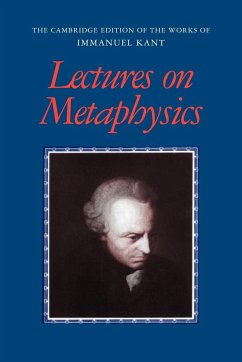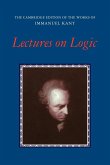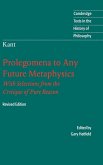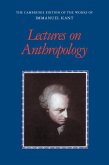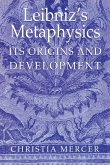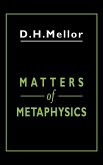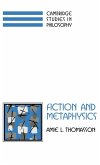- Broschiertes Buch
- Merkliste
- Auf die Merkliste
- Bewerten Bewerten
- Teilen
- Produkt teilen
- Produkterinnerung
- Produkterinnerung
This volume contains the first translation into English of notes from Kant's lectures on metaphysics.
Andere Kunden interessierten sich auch für
![Lectures on Logic Lectures on Logic]() Immanuel KantLectures on Logic54,99 €
Immanuel KantLectures on Logic54,99 €![Immanuel Kant Immanuel Kant]() Immanuel KantImmanuel Kant101,99 €
Immanuel KantImmanuel Kant101,99 €![Lectures on Anthropology Lectures on Anthropology]() Immanuel KantLectures on Anthropology189,99 €
Immanuel KantLectures on Anthropology189,99 €![Groundwork of the Metaphysics of Morals Groundwork of the Metaphysics of Morals]() Immanuel KantGroundwork of the Metaphysics of Morals103,99 €
Immanuel KantGroundwork of the Metaphysics of Morals103,99 €![Leibniz's Metaphysics Leibniz's Metaphysics]() Christia MercerLeibniz's Metaphysics66,99 €
Christia MercerLeibniz's Metaphysics66,99 €![Matters of Metaphysics Matters of Metaphysics]() D. H. MellorMatters of Metaphysics104,99 €
D. H. MellorMatters of Metaphysics104,99 €![Fiction and Metaphysics Fiction and Metaphysics]() Amie L. ThomassonFiction and Metaphysics138,99 €
Amie L. ThomassonFiction and Metaphysics138,99 €-
-
-
This volume contains the first translation into English of notes from Kant's lectures on metaphysics.
Hinweis: Dieser Artikel kann nur an eine deutsche Lieferadresse ausgeliefert werden.
Hinweis: Dieser Artikel kann nur an eine deutsche Lieferadresse ausgeliefert werden.
Produktdetails
- Produktdetails
- Verlag: Cambridge University Press
- Seitenzahl: 696
- Erscheinungstermin: 30. März 2009
- Englisch
- Abmessung: 229mm x 152mm x 37mm
- Gewicht: 991g
- ISBN-13: 9780521000765
- ISBN-10: 0521000769
- Artikelnr.: 22344555
- Herstellerkennzeichnung
- Libri GmbH
- Europaallee 1
- 36244 Bad Hersfeld
- gpsr@libri.de
- Verlag: Cambridge University Press
- Seitenzahl: 696
- Erscheinungstermin: 30. März 2009
- Englisch
- Abmessung: 229mm x 152mm x 37mm
- Gewicht: 991g
- ISBN-13: 9780521000765
- ISBN-10: 0521000769
- Artikelnr.: 22344555
- Herstellerkennzeichnung
- Libri GmbH
- Europaallee 1
- 36244 Bad Hersfeld
- gpsr@libri.de
Immanuel Kant ( 22 April 1724 - 12 February 1804) was an influential German philosopher[23] in the Age of Enlightenment. In his doctrine of transcendental idealism, he argued that space, time, and causation are mere sensibilities; "things-in-themselves" exist, but their nature is unknowable.[24][25] In his view, the mind shapes and structures experience, with all human experience sharing certain structural features. In one of his major works, the Critique of Pure Reason (1781; second edition 1787),[26] he drew a parallel to the Copernican revolution in his proposition that worldly objects can be intuited a priori ('beforehand'), and that intuition is therefore independent from objective reality.[b] Kant believed that reason is also the source of morality, and that aesthetics arise from a faculty of disinterested judgment. Kant's views continue to have a major influence on contemporary philosophy, especially the fields of epistemology, ethics, political theory, and post-modern aesthetics. He attempted to explain the relationship between reason and human experience and to move beyond the failures of traditional philosophy and metaphysics. He wanted to put an end to what he saw as an era of futile and speculative theories of human experience, while resisting the skepticism of thinkers such as David Hume. He regarded himself as showing the way past the impasse between rationalists and empiricists,[28] and is widely held to have synthesized both traditions in his thought.[29] Kant was an exponent of the idea that perpetual peace could be secured through universal democracy and international cooperation. He believed that this would be the eventual outcome of universal history, although it is not rationally planned.[30] The nature of Kant's religious ideas continues to be the subject of philosophical dispute, with viewpoints ranging from the impression that he was an initial advocate of atheism who at some point developed an ontological argument for God, to more critical treatments epitomized by Schopenhauer, who criticized the imperative form of Kantian ethics as "theological morals" and the "Mosaic Decalogue in disguise",[31] and Nietzsche, who claimed that Kant had "theologian blood"[32] and was merely a sophisticated apologist for traditional Christian faith
1. Metaphysik Herder (selections) [Ak. 28: 39
53]; 2. Metaphysik L1 (complete except for the Natural Theology and Heinze extracts) [Ak.28: 195
301]; 3. Metaphysik Mrongovius (complete except for the Natural Theology) [Ak.29: 747
940]; 4. Metaphysik Volckmann (selections) [AK. 28: 440
50]; 5. Metaphysic L2 (complete except for the Natural Theology) [AK. 28: 531
94]; 6. Metaphysic Dohna (selections) [Ak. 28: 656
90]; 7. Metaphysik K2 (selections) [Ak.28: 753
75]; 8. Metaphysik Vigilantius (K3) (complete except for the Natural Theology) [Ak.29: 941
1040].
53]; 2. Metaphysik L1 (complete except for the Natural Theology and Heinze extracts) [Ak.28: 195
301]; 3. Metaphysik Mrongovius (complete except for the Natural Theology) [Ak.29: 747
940]; 4. Metaphysik Volckmann (selections) [AK. 28: 440
50]; 5. Metaphysic L2 (complete except for the Natural Theology) [AK. 28: 531
94]; 6. Metaphysic Dohna (selections) [Ak. 28: 656
90]; 7. Metaphysik K2 (selections) [Ak.28: 753
75]; 8. Metaphysik Vigilantius (K3) (complete except for the Natural Theology) [Ak.29: 941
1040].
1. Metaphysik Herder (selections) [Ak. 28: 39
53]; 2. Metaphysik L1 (complete except for the Natural Theology and Heinze extracts) [Ak.28: 195
301]; 3. Metaphysik Mrongovius (complete except for the Natural Theology) [Ak.29: 747
940]; 4. Metaphysik Volckmann (selections) [AK. 28: 440
50]; 5. Metaphysic L2 (complete except for the Natural Theology) [AK. 28: 531
94]; 6. Metaphysic Dohna (selections) [Ak. 28: 656
90]; 7. Metaphysik K2 (selections) [Ak.28: 753
75]; 8. Metaphysik Vigilantius (K3) (complete except for the Natural Theology) [Ak.29: 941
1040].
53]; 2. Metaphysik L1 (complete except for the Natural Theology and Heinze extracts) [Ak.28: 195
301]; 3. Metaphysik Mrongovius (complete except for the Natural Theology) [Ak.29: 747
940]; 4. Metaphysik Volckmann (selections) [AK. 28: 440
50]; 5. Metaphysic L2 (complete except for the Natural Theology) [AK. 28: 531
94]; 6. Metaphysic Dohna (selections) [Ak. 28: 656
90]; 7. Metaphysik K2 (selections) [Ak.28: 753
75]; 8. Metaphysik Vigilantius (K3) (complete except for the Natural Theology) [Ak.29: 941
1040].

